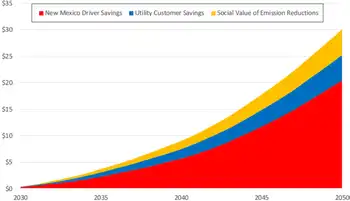Counting kilowatts isnÂ’t easy
- Electricity prices are on the rise across Canada. Last summer in Ontario, the sales tax on power increase from 5 per cent to 13 per cent with the introduction of the HST.
Will these price and tax increases cause consumers to lower their energy use?
The academic research suggests it will, but that consumers have difficulty determining the best ways to conserve power.
There have a large number of studies over the years to determine how sensitive residential consumer demand for electricity is relative to changes in price. Espey and Espey 2004 examined 36 such studies and found that, on average, a 10 per cent increase in electricity prices reduced consumption by households by 3.5 per cent in the short-run and 8.5 per cent in the long run. The increased reduction in the long run should not come as a surprise, as over time households respond to increased electricity prices by adding insulation, replacing old windows and installing energy efficient appliances.
Electricity is an unusual good. If the price of, say, raspberries goes up it is relatively straight forward to respond, by purchasing fewer raspberries at the supermarket. If the price of electricity goes up, however, it is less obvious how to respond.
A typical house will have dozens of lights and several dozen electrical outlets, many of which will have items that are plugged in at all times computers, televisions, coffee makers, etc. along with larger power-using appliances such as refrigerators and clothes dryers.
One-third of households use electricity to heat their homes Statistics Canada - 2003 Survey of Household Energy Use and a similar proportion have electricity-based central air conditioning systems. When the price of electricity rises, if a household wishes to cut their consumption they need to determine the most efficient ways of doing so.
Recent research indicates that consumers do a particularly poor job of estimating the savings from altering how they use power. Attari et. al. 2010 conducted an online of survey of 505 individuals and found that:
"When asked for the most effective strategy they could implement to conserve energy, most participants mentioned curtailment e.g., turning off lights, driving less rather than efficiency improvements e.g., installing more efficient light bulbs and appliances, in contrast to expertsÂ’ recommendations. For a sample of 15 activities, participants underestimated energy use and savings by a factor of 2.8 on average, with small overestimates for low-energy activities and large underestimates for high-energy activities."
If governments are using higher prices as a mechanism to reduce electricity consumption, they may want to couple this with increasing the amount of information available to consumers. One potential method that could be used is mandatory ‘calorie counts’ on electrical appliances and light bulbs.
For instance, suppose the average coffee maker is left plugged-in at all times and is used once a day. We can determine the amount of power used by that coffee maker in one year and the average cost of that power. That information can be placed on the product label, just as calorie counts are required on food products. With this information, consumers are given the power to make better decisions when it comes to their power consumption.
There are many other ways to give consumers additional information to allow them to make better decisions when it comes to reducing their energy consumption. Higher prices will reduce consumption, but if the goal of higher prices and taxes on electricity is to reduce consumption and not to increase government revenues, then additional policy changes may be required.
Related News

Portland General Electric Program Will Transform Hundreds of Homes Into a Virtual Power Plant
PORTLAND - Portland General Electric Company is set to launch a pilot program that will incentivize installation and connection of 525 residential energy storage batteries that PGE will dispatch, contributing up to four megawatts of energy to PGE's grid. The distributed assets will create a virtual power plant made up of small units that can be operated individually or combined to serve the grid, adding flexibility that supports PGE's transition to a clean energy future. When the program launches this fall, incentives will be available to residential customers across PGE's service area. Rebates will be available to customers within three neighborhoods…




